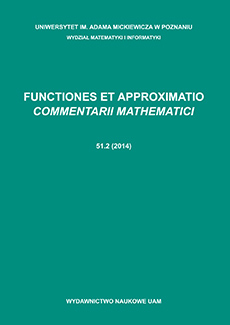Abstract
We give the complete solution $(n,a,b,x,y)$ of the title equation when $\gcd(x,y)=1$, except for the case when $xab$ is odd. Our main result is Theorem 1.
Citation
Musa Demirci. İsmail Naci Cangül. Gökhan Soydan. Nikos Tzanakis. "On the diophantine equation $x^{2}+5^{a}\cdot 11^{b}=y^{n}$." Funct. Approx. Comment. Math. 43 (2) 209 - 225, December 2010. https://doi.org/10.7169/facm/1291903397
Information





